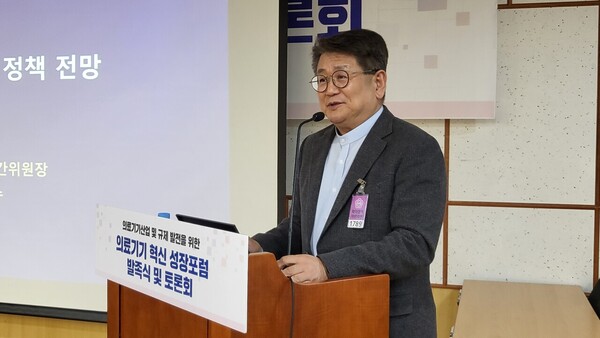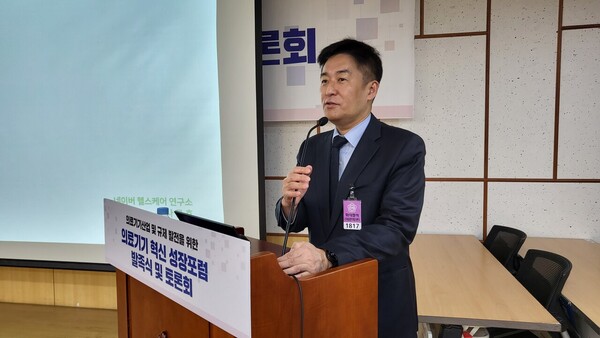
Although the Korean medical device market grows rapidly, foreign companies, not domestic firms, take substantive profits, an expert pointed out Monday.
Sun Kyung, a special professor at Kyung Hee University, said so during a forum to discuss the innovative growth of medical equipment at the National Assembly. “The domestic medical device market and the domestic businesses should grow together,” Sun said.
Explaining major policies pushed by the Ministry of Food and Drug Safety to develop the Korean medical device industry, Sun noted that the government pushes to make the bio-industry a second growth engine following semiconductors.
“The incumbent government puts particular emphasis on medical devices. For the industry to become the next growth engine, it should earn money,” the professor said. “However, only the domestic market grows without the corresponding growth of domestic makers, indicating it has a structure where foreign companies reap profits.”
Noting that the government has a very optimistic scenario about the healthcare industry, including medical devices, Professor Sun pointed out there could be a pessimistic future, too, expressing concerns about the health divide caused by different income and educational levels, regions, and social classes.
“Worldwide, cooperation between medical professionals and engineers is regarded very important in the medical equipment sector,” he said. “However, foreign companies take the lead in most cases. From now on, I hope to see more examples of Korean companies making global hit products and the whole world using them.”

Industry executives share the concern.
“The biggest domain of the medical equipment industry is healthcare service. So, for instance, the global sensation of ChatGPT also has a great possibility of application to healthcare,” said Ra Gun-ho, director of Naver Healthcare Research Institute. “We have the experience of grafting our meeting minute preparation program, ‘Clover Note,’ to a nursing record transfer program. As a result of using the program at Sun Chun Hyang University Hospital, it showed a 98 percent precision rate.”
Ra explained that as recently as in early 2021, it took 15,000 hours to make a nursing record transfer program. However, thanks to the sophistication of machine learning technology, they could turn the program into voice data in 300 hours.
“Even more interestingly, the nursing program was made by oncology department wards, but it saved the efforts of other departments, such as neurological or cardiothoracic departments, to make separate nursing programs,” he added.
Pointing out that in domestic healthcare, current artificial intelligence technology can solve medical practices where Korean and English are mixed, he said the technology is improving so well that local governments are using it in dementia relief centers.
However, Ra expressed concerns about protecting domestic companies in the service sector, including the medical device industry, in the future.
“Few countries worldwide have their search engines,” Ra said. “If the government opens the way a little wider in terms of regulation, the Korean medical device and artificial intelligence industries will lead the world.”

